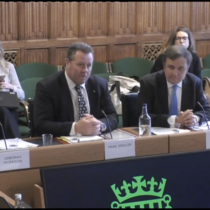Impact of Carbon Dioxide Gas Shortages on the British Meat Industry
Carbon dioxide gas shortages may affect the supply of meat and meat products to UK consumers as it is widely used in the meat processing industry. The shortages are more likely to impact the meat industry than other sectors because the knock on effects can occur further back in the food supply chain, which could be heavily disrupted.
Carbon dioxide gas is used for gas-flushed and modified atmosphere product packaging and also as a humane method of stunning at the point of slaughter. A shortage of CO2 gas will therefore affect a wide variety of foods from cooked and fresh meat and ready meals through to pre-packaged salads.
The industry is currently working together to find some mitigating solutions to the packing and the slaughterhouse problem. However, in practice, each food business operator will be affected differently depending on what their CO2 usage is, the reserves they have and what contracts they have in place with their gas suppliers.
If meat producers become unable to operate due to a lack of CO2, slaughtering capacity would be reduced which would create a particular challenge in terms of holding back pigs and re-directing them to other plants not dependent on CO2 in order to prevent an issue.
Fiona Steiger, Deputy Director of the BMPA said, “We are concerned about the CO2 shortage and we and our members are working with the retailers and government officials to keep the supply chain moving.
“It is understood that shortage of carbon dioxide gas could last approximately four weeks, but the true picture is still emerging as more information comes through from gas suppliers and their customers up and down the food supply chain.
“I have not heard that any of my members have stopped production, so I am confident there will still be meat for your barbecue and roast this weekend.”





